I recently received a vintage display box used by IBM to illustrate the progress of computer technology. This display case, created by IBM Germany1 in 1986 included technologies ranging from vacuum tubes and magnetic core memory to IBM’s latest (at the time) memory chips and processor modules. In this blog post, I describe… Read More
Author: Ken Shirriff
Examining a technology sample kit: IBM components from 1948 to 1986
How to multiply currents: Inside a Counterfeit Analog Multiplier
A recent Twitter thread about a counterfeit analog multiplier chip attracted my attention since I’m interested in both counterfeit integrated circuits and how analog computers multiply. In the thread, John McMaster decapped a suspicious AD633 analog multiplier chip and found an entirely different Rockwell RC4200… Read More
Reverse-engineering the First FPGA Chip Xilinx XC2064
A Field-Programmable Gate Array (FPGA) can implement arbitrary digital logic, anything from a microprocessor to a video generator or crypto miner. An FPGA consists of many logic blocks, each typically consisting of a flip flop and a logic function, along with a routing network that connects the logic blocks. What makes an FPGA… Read More
Inside the HP Nanoprocessor: A High-speed Processor That Can’t Even Add
The Nanoprocessor is a mostly-forgotten processor developed by Hewlett-Packard in 19741 as a microcontroller2 for their products. Strangely, this processor couldn’t even add or subtract,3 probably why it was called a nanoprocessor and not a microprocessor. Despite this limitation, the Nanoprocessor powered numerous… Read More
Inside a Counterfeit 8086 Processor
Intel introduced the 8086 processor in 1978, leading to the x86 architecture in use today. I’m currently reverse-engineering the circuitry of the 8086 so I’ve been purchasing vintage 8086 chips off eBay. One chip I received is shown below. From the outside, it looks like a typical Intel 8086.
Die shrink: How Intel scaled down the 8086 processor
The revolutionary Intel 8086 microprocessor was introduced 42 years ago this month so I’ve been studying its die.1 I came across two 8086 dies with different sizes, which reveal details of how a die shrink works. The concept of a die shrink is that as technology improved, a manufacturer could shrink the silicon die, reducing… Read More
A Look at the Die of the 8086 Processor
The Intel 8086 microprocessor was introduced 42 years ago last month,1 so I made some high-res die photos of the chip to celebrate. The 8086 is one of the most influential chips ever created; it started the x86 architecture that still dominates desktop and server computing today. By looking at the chip’s silicon, we can see… Read More



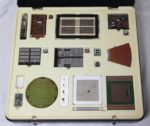

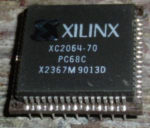
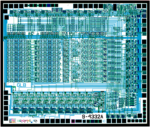

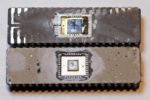
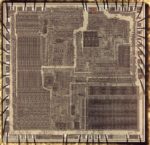








A Century of Miracles: From the FET’s Inception to the Horizons Ahead